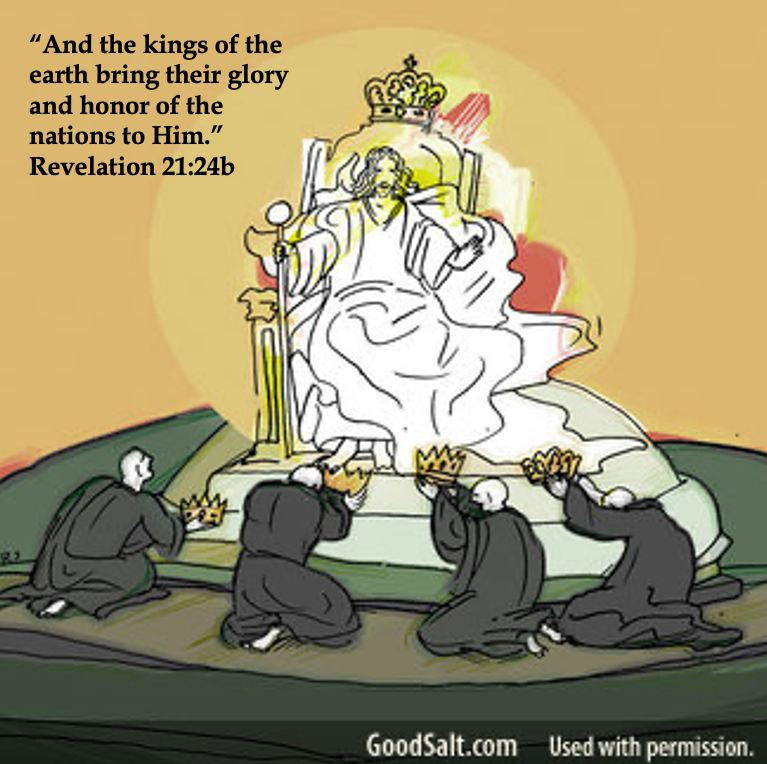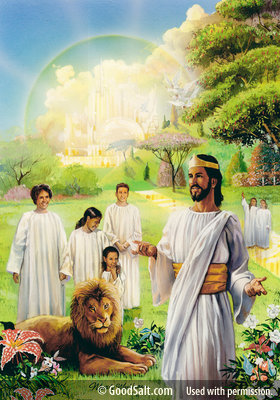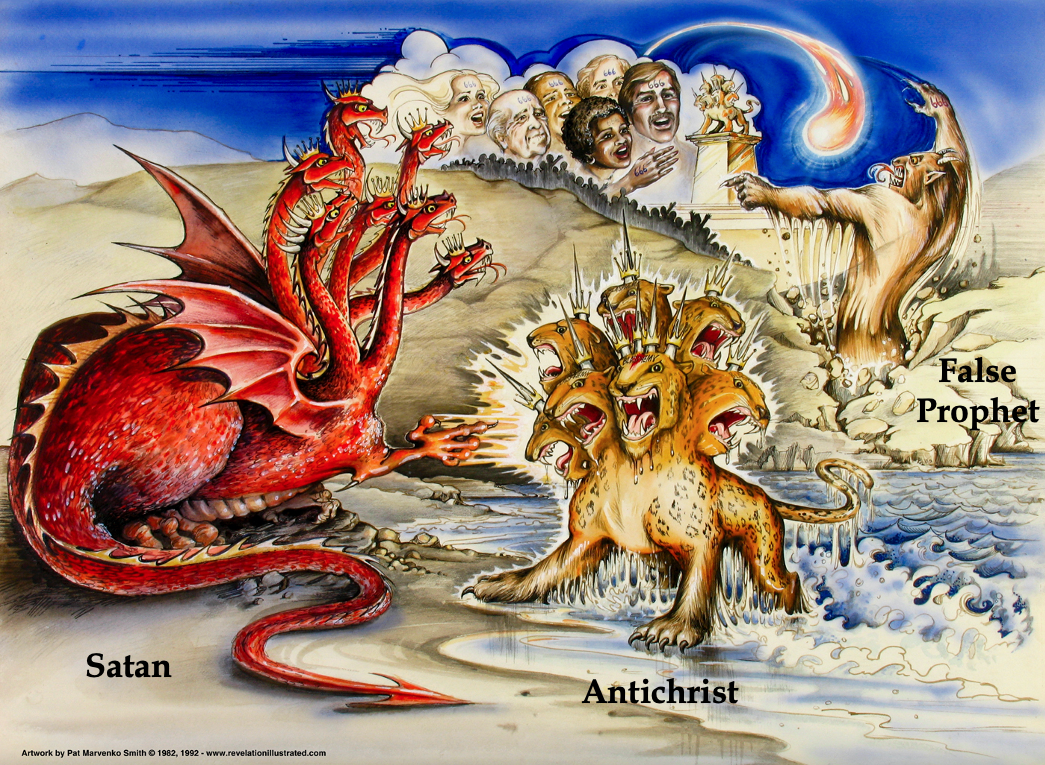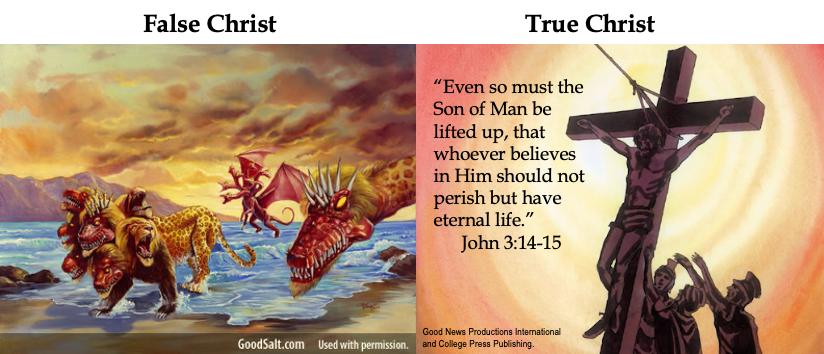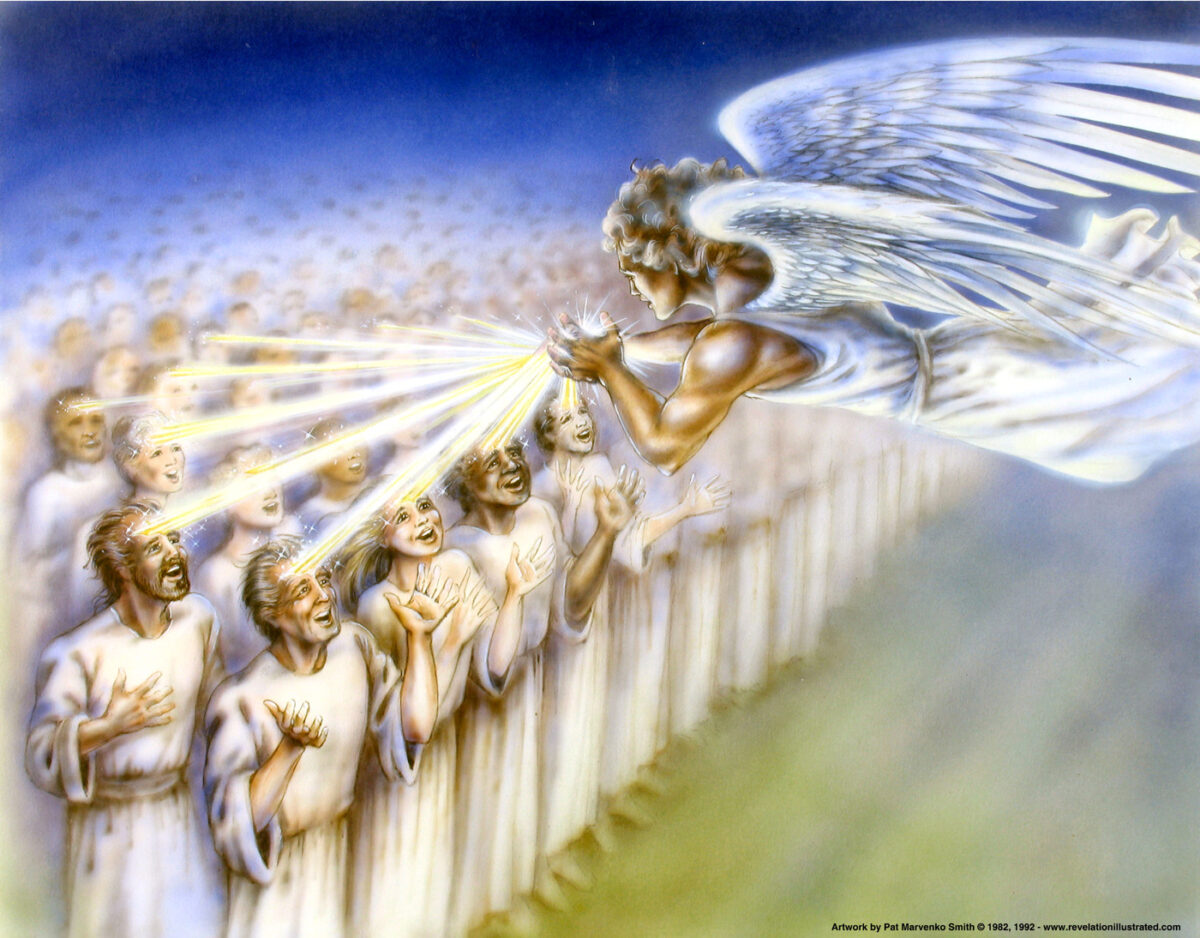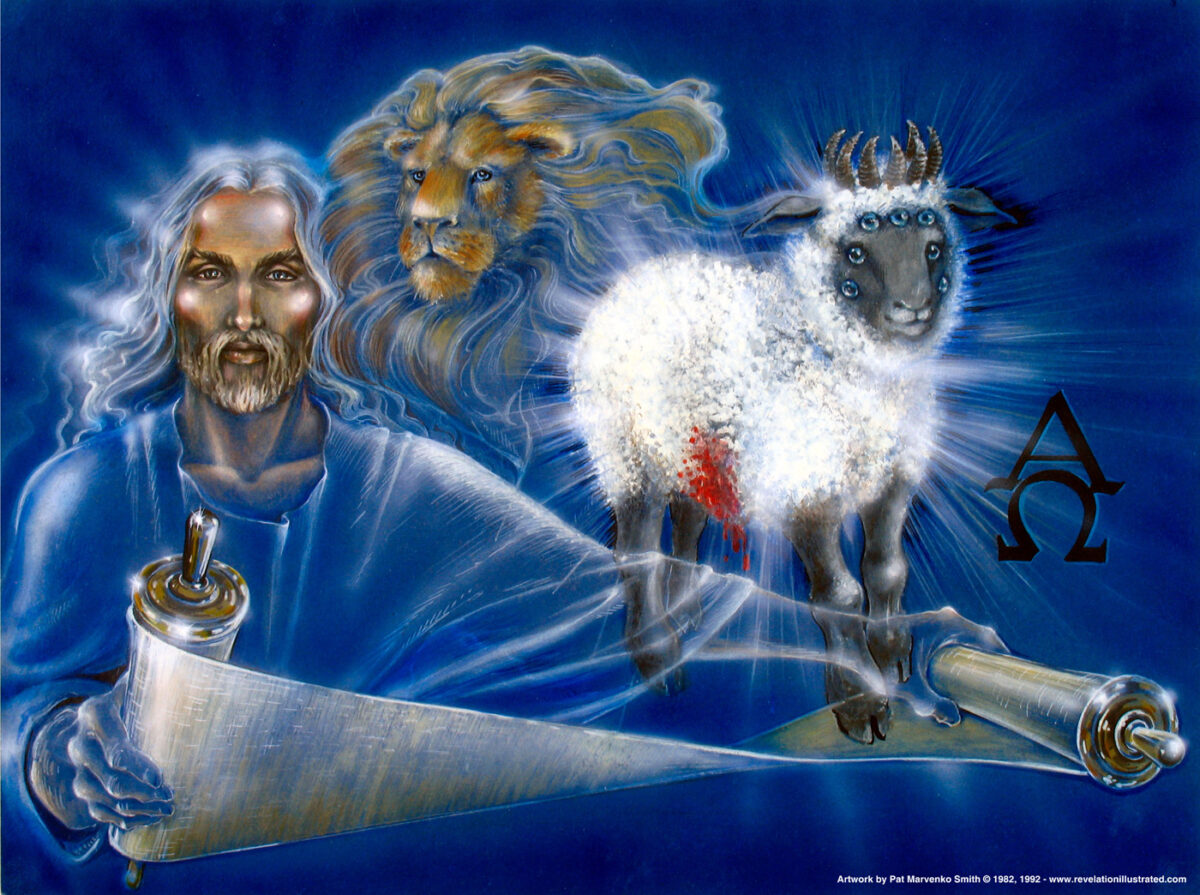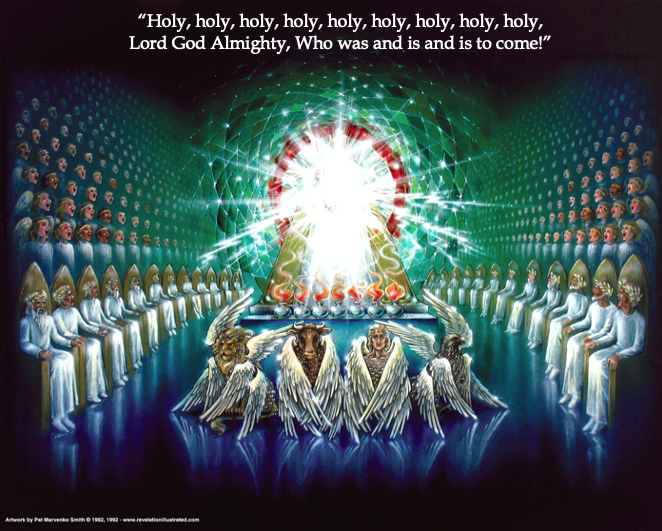“And the nations shall walk in its light, and the kings of the earth bring their glory and honor of the nations to Him.” Revelation 21:24
Last time we saw that there will be no need of the sun or moon to shine because the glory of the Lord Jesus Christ will illuminate the entire New Jerusalem on the new earth (21:22-23). This Celestial City is so bright that it will also provide light for the entire new earth. “And the nations shall walk in its light, and the kings of the earth bring their glory and honor of the nations to Him.” (Revelation 21:24). Notice that there will be “nations” on the new earth, perhaps much like we have today. Since the New Jerusalem is inhabited by King Jesus and believers from the Church Age (21:2, 9-10; cf. 19:7, 22:17; 2 Corinthians 11:2; Ephesians 5:27), these “nations” consist of believers in Christ from before and after the Church Age who live outside the city on the new earth. These other believers will also have access to the New Jerusalem because of their faith in Christ (21:27b).
Vacendak writes, “God will create human beings to live on the new earth just as He created Adam and Eve – sinless people whose status and condition will be similar to Adam and Eve’s before the Fall… More likely, believers who are alive on earth at the end of the Millennium will be brought into the new heavens and earth in their unresurrected bodies to populate it. These bodies will be transformed into sinless bodies, but will not have been resurrected. They will be like Adam and Eve before they sinned, but without the ability to sin. As such, they will procreate and populate the new heavens and the new earth, and so they will form the nations.” 1
It is likely then that the nations will be comprised of resurrected and unresurrected believers from before and after the Church Age who “shall walk in” the brilliant “light” of the New Jerusalem. The “kings” (basileis) or rulers 2 are “overcomers” who remained faithful to Christ to the end of their lives (21:24b; cf. 2:10b, 25-27; 22:5; cf. 2 Timothy 2:12).
These “kings of the earth bring their glory and honor of the nations to Him” (21:24b). This suggests that there will be human government and economy on the new earth. The leaders of these nations will reenact what the wise men did over two thousand years ago when they brought their gold and other treasures to the Baby Jesus (cf. Matthew 2:1-11). 3 In eternity on the new earth, the kings of the earth are going to bring their “glory and honor” or treasures to King Jesus year after year in the New Jerusalem to worship and glorify Him. Everyone on the new earth will bring glory to God.
Next the apostle John informs us, “Its gates shall not be shut at all by day (there shall be no night there).” (Revelation 21:25). In John’s day, cities closed their gates to keep their enemies out, especially at night. But on the new earth there will be no need to shut the gates of the New Jerusalem because King Jesus will have no enemies on the new earth and there “shall be no night there” because the light of His glory illuminates everything. The phrase “shall not be shut at all” (ou mē kleisthōsin) is emphatic and literally says “shall no not ever be shut.” 4 Since the gates of the New Jerusalem will never ever be shut, the rulers of the nations will have continual access into the city.
“And they shall bring the glory and the honor of the nations so that they may enter it.” (Revelation 21:26). The kings “shall bring the glory and the honor of the nations“ into the New Jerusalem “so that they” themselves “may enter” (21:26b) through “its gates” (21:25a). Only overcoming or faithful believers will enter through the main “gates” of the New Jerusalem. This is seen in Revelation 22:14: “Blessed are those who do His commandments, that they may have the right to the tree of life, and may enter through the gates into the city.” The majority of Greek manuscripts contain the phrase “do His commandments.” Only those believers whose lives are characterized by obedience to Christ to the end of their lives (cf. 2:10, 25-27) will be rewarded with this special honor. The emphasis of verse 14 is not on entering the city, but on entering by “the gates” into the city. Every believer can enter the city, but only some will come in through the gates. This is emphatic in the Greek text which literally says, “and by the gates they may enter into the city” (kai tois pylōsin eiselthōsineis tēn polin).The apostle John is emphasizing the way of entrance, that is, by the gates, and not the fact of entrance. 5
“Gates of ancient cities were for defense or honor or both. To be known ‘in the gates’ was to sit among the ‘elders of the land’ and have a position of high honor and authority (Proverbs 31:23, cf. ISBE 2:408). Since defense is not a function of these ‘gates’ into the heavenly city; they are to be regarded as places of honor and authority. The overcomer was promised ‘authority’ over the nations (Revelation 2:26). John describes them elsewhere, as memorials to the twelve tribes of Israel (21:12, 14). We are reminded of the Roman victory arches which sat astride the main thoroughfares entering into Rome. There were thousands of entry ways into Rome, but Caesar entered by these gates, by the victory arch. Through these gates, according to John, ‘the honor and glory of the nations’ will enter (Revelation 21:25-26).” 6 “As Lange has suggested, to enter by the gates means to enter ‘as conquerors in triumphal procession.’” 7
So what John probably had in mind when he speaks of the kings of the nations entering into the New Jerusalem through “its gates” (21:24-26), are “the victory arches that towered over the main thoroughfares entering into Rome. Through these gates the triumphant Roman generals and their soldiers would march.” 8

For example, “the Arch of Titus near the Forum in Rome… was constructed after his victory over Jerusalem in AD 70.
“Engravings on it show Roman soldiers bringing back treasures from the temple in Jerusalem. Similarly, those Christians [believers] who remain faithful to their King will enter the city in victory and will be likewise honored.” 9
Whether you are an overcoming believer who enters through one of the main gates of the New Jerusalem or a non-overcoming believer who enters the city through another entrance, everyone will have a desire to bring honor and glory to God Who reigns over the new earth from that city. Not one person will be unwilling to do this because every citizen on the new earth will be a sinless believer. The eternal state will have rules and laws, but no one there will want to disobey them. 10
After mentioning who may enter the New Jerusalem, John now tells us what cannot enter the city. “But there shall by no means enter it anything profane, nor one who causes an abomination or a lie, but only those who are written in the Lamb’s Book of Life.” (Revelation 21:27). Nothing that is “profane” (koinon) or impure 11 can enter the New Jerusalem, “nor one who causes an abomination” (bdelugma)which refers to “something that causes revulsion or extreme disgust… in the sight of God.” 12 Nor will anyone enter the city “who causes… a lie” (pseudos) or falsehood. 13
Even though the city gates will continually be wide open, nothing that is evil or leads to evil will ever be part of the New Jerusalem. This does not mean there will be people on the new earth outside the New Jerusalem who are evil. In the context of these final chapters in the book of Revelation, unbelieving people and all their evil ways have been confined to the lake of fire forever (cf. 20:11-15; 21:8). 14 This part of the verse is saying nothing about born again believers in Jesus who were evil or led people to do evil during their lives on the old earth because their sins are now gone forever since they are forgiven, immortal, and sinless (Acts 10:43; Colossians 2:13-14; I Corinthians 15:35-57; 2 Corinthians 5:17; Ephesians 5:26-27; I John 3:1-3).
“Only those who are written in the Lamb’s Book of Life” (21:27b) will be able to enter or inhabit the New Jerusalem. It is important to observe that it is the absence of one’s name “in the Lamb’s Book of Life,” not the absence of good works, that determines one’s eternal destination. Evil works are not the issue for entrance into the New Jerusalem. Many of the earth’s greatest sinners’ names are recorded in the Lamb’s Book of Life because they received God’s free offer of eternal life through faith alone in Christ alone (Romans 6:23b; Ephesians 2:8-9). 15
Alcorn states that many Americans believe going to heaven is their “default destination.” 16 But this optimism is contrary to what Jesus warned when He said, “13 Enter by the narrow gate; for wide is the gate and broad is the way that leads to destruction, and there are many who go in by it. 14 Because narrow is the gate and difficult is the way which leads to life, and there are few who find it.” (Matthew 7:13-14). Christ makes it clear that “few” people find the way that leads into eternal life. This is probably because few people are being told that faith alone in Christ alone is the only way into God’s heaven (John 10:9; 11:25-26; Act 4:12; I Timothy 2:3-5).
What would keep all of us out of heaven is failure to believe in Christ alone for His gift of eternal life. This is the one sin that cannot be forgiven. All other sins are forgivable (Colossians 2:13-14; Psalm 86:5; 103:2a, 3a; Isaiah 38:17; Micah 7:19b; Acts 10:43). 17
Jesus said God the Holy Spirit was sent to “8 convict the world of sin, and of righteousness, and of judgment: 9 of sin, because they do not believe in Me.” (John 16:8-9). The word “sin” (hamartias) means “to miss the mark or standard.” 18 All people fall short of God’s perfect righteousness because “all have sinned” (Romans 3:23) against God through their thoughts, words, actions, and motives. Our sin separates us from God because He is holy and righteous and cannot allow sin into His presence: “Your eyes are too pure to look on evil; You cannot tolerate wrongdoing.” (Habakkuk 1:13 NIV; cf. Isaiah 59:2). Because we are all sinners, we deserve eternal death or separation from God forever in the lake of fire (Romans 6:23a; Revelation 20:15). We are not able to enter God’s heaven as we are. Hence, heaven is not our default destination. The lake of fire is our default destination. 19
Yet the world tries to persuade people that they are not sinners. Many secular scientists and psychologists seem bent on destroying peoples’ awareness of sin. They may say that all people are inherently good. As a result, many people have a difficult time admitting they are guilty of sin. Oh, they may admit that they make mistakes or have failures and vices, but it is very difficult for them to admit that they have sinned against God. Even some churches say that people are not that bad and because God is love, He will accept everyone into heaven. Hence, many people, including Christians, believe that going to heaven is their default destination.
But the ultimate proof of the world’s sinfulness, Jesus says, is that “they do not believe in Me” (John 16:9). A court of law can convict someone of murder or theft, but only God the Holy Spirit can convict someone of unbelief toward Christ. The Holy Spirit can convict people of their individual sins they have committed, but people can clean up their own lives and still go to the lake of fire. It is the sin of unbelief toward Jesus Christ that condemns people to an eternity in the lake of fire. Jesus said, “He who believes in Him is not condemned; but he who does not believe is condemned already, because he has not believed in the name of the only begotten Son of God.” (John 3:18).That is why the Bible says that “Anyone not found written in the Book of Life was cast into the lake of fire.” (Revelation 20:15). Those who refuse to believe in Jesus will not have their names written in the Book of Life.
Unbelievers are judged according to their works to determine their degree of punishment in the lake of fire (Revelation 20:12-13; cf. Matthew 23:14; Mark 12:40), not their eternal destination. But their condemnation and placement in the lake of fire is because of their unbelief toward the Lord Jesus Christ (Revelation 20:15; cf. John 3:18).
Because faith in Christ and His full payment for sin on the cross (John 19:30) is the only solution to our sin problem, the Holy Spirit wants to convict people of their sinful condition, so they can see their need to believe in Jesus alone for His gift of everlasting life (John 3:14-16). The Holy Spirit is the prosecuting attorney who presents God’s case against sinful humanity. He creates an awareness of sin so that it cannot be dismissed or excused or evaded by taking refuge in the fact that “everybody is doing it.” When we are convicted of our sin, we admit to God that we have been wrong in our unbelief toward Jesus and then we believe or trust in Him alone, so we can live with Christ forever in the New Jerusalem on the new earth.
Do you know for sure your name is written in the Lamb’s Book of Life? Don’t wait and see, just hoping that your name will be in the Book of Life. You can know for sure right now by taking God at His Word. The apostle John who wrote Revelation and the gospel of John, also wrote First John. He writes, “These things I have written to you who believe in the name of the Son of God, that you may know that you have eternal life.” (I John 5:13). This one verse is written to “you who believe in the name of the Son of God.” Do you believe in the name of God’s Son, Jesus Christ, Who died for all your sins and rose from the dead, proving His claims to be God are true (cf. John 20:31; Romans 1:3-4; I Corinthians 15:3-6)?
If you do, the Bible guarantees “you may know that you have eternal life.” It does not say you may “think” or “hope” you have eternal life. It says you may “know” with absolute certainty that eternal life is yours right now. Because Jesus Christ is “the truth” (John 14:6) and cannot lie (Titus 1:2; Hebrews 6:18), we can be confident He will keep His promise of eternal life to all who believe in Him (cf. John 3:15-16). Do you now know for sure you have eternal life and a future forever home in the New Jerusalem on the new earth? If you do, you can tell God this through prayer.
Prayer: Lord Jesus, thank You for persuading me that I am a sinner whose default destination is in the lake of fire. I believe You took my place on the cross to die for all my sins and then rose from the dead, proving You are God. As best I know how, I am now believing in You for Your gift of everlasting life. Thank You for the everlasting life I now have and for the future forever home I will have in the New Jerusalem on the new earth. Please use me now to tell others how they can know for sure they will live forever with You in Your heaven. Help me remain faithful to You so I may honor and worship You more with the rewards You give for faithfulness. In Your mighty name I pray, Lord Jesus. Amen.
ENDNOTES:
1. Bob Vacendak; Robert Wilkin; J. Bond; Gary Derickson; Brad Doskocil; Zane Hodges; Dwight Hunt; Shawn Leach; The Grace New Testament Commentary: Revised Edition (Grace Evangelical Society, Kindle Edition, 2019), pg. 1586.
2. Walter Bauer, A Greek-English Lexicon of the New Testament and Other Early Christian Literature: Third Edition (BDAG) revised and edited by Frederick William Danker (Chicago: University of Chicago Press, 2000 Kindle Edition), pp. 169-170.
3. Robert N. Wilkin, The Road to Reward: A Biblical Theology of Eternal Rewards Second Edition (Grace Evangelical Society, 2014 Kindle Edition), pg. 40.
4. Tom Constable, Notes on Revelation, 2017 Edition, pg. 245.
5. Joseph Dillow, Final Destiny: The Future Reign of The Servant Kings: Fourth Revised Edition (Grace Theology Press, 2018 Kindle Edition), pp. 974-975.
6. Ibid., pg. 975.
7. Ibid., cites John Peter Lange, “The Revelation of John,” in A Commentary on the Holy Scriptures, ed. John Peter Lange, et al. (Bellingham, WA: Logos Bible Software, 2008), 12:446.
8. Dillow, pg. 975.
9. Ibid.
10. Vacendak, pp. 1586-1587.
11. Bauer, pg. 552.
12. Ibid., pg. 172.
13. Ibid., pg. 1097.
14. Vacendak, pg. 1587.
15. Adapted from David Jeremiah, Answers to Your Questions about Heaven (Carol Stream, IL: Tyndale House Publishers, Inc., 2015 Kindle Edition), pg. 21 who cites William R. Newell, The Book of the Revelation, 9th ed. (Chicago: Moody Press, 1935), pg. 334.
16. Randy Alcorn, Heaven: A Comprehensive Guide to Everything the Bible Says About Our Eternal Home (Tyndale House Publishers, 2004 Kindle Edition), pg. 54 cites K. Connie Kang, “Next Stop, the Pearly Gates… or Hell?” Los Angeles Times, October 24, 2003.
17. Blasphemy of the Holy Spirit (Matthew 12:31-32) is not unforgivable, it is unforgiven because those who commit this sin are too hard of heart to seek God’s forgiveness through faith in Jesus Christ (Matthew 12:33-37). See “Can a Christian commit blasphemy of the Holy Spirit?” at www.seeyouinheaven.life.
18. Archibald Thomas Robertson, Word Pictures in The New Testament, Vol V: John and Hebrews (Grand Rapids: Baker Book House, 1932), pg. 267.
19. Alcorn, pg. 54.

